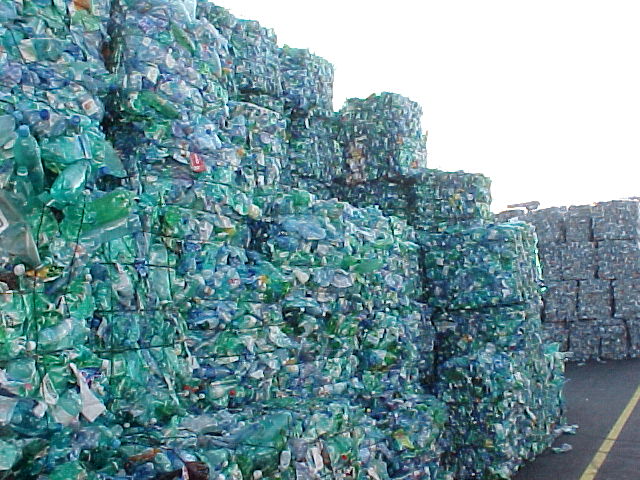 Oldham’s refuse and recycling disposal is managed by Greater Manchester Waste Disposal Authority (GMWDA). At present GMWDA are only able to recycle certain types of plastics – namely plastic bottles.
Oldham’s refuse and recycling disposal is managed by Greater Manchester Waste Disposal Authority (GMWDA). At present GMWDA are only able to recycle certain types of plastics – namely plastic bottles.
Plastics are made from different grades/types of plastics which melt at different temperatures, and therefore, a plastic bottle and a yoghurt pot for example, cannot be recycled together. Technically it is possible to recycle these separately, however, the range of materials that can be recycled is driven by the manufacturers that make the products. Currently these manufactures want high grade bottle type plastic to make their products (as they are easier to reprocess) and there is much less demand for lower grade materials such as plastic Pots, Tubs and Trays (PTT).
Plastic bottles tend to be made from either HDPE or PET polymers which are in high demand for recycling and it is this well-developed market which GMWDA feeds collected plastic bottles into for recycling. Whist bottle PET has a well-established market for recycling unfortunately this is not the case for PET trays. There are a number of reasons for this but principally the plastics reprocessors prefer the bottle PET as this is high quality and will not have been blended with lower quality polymers which is what happens with some trays. The current suppressed oil price is also reducing demand for recycled plastics as plastics produced from raw hydrocarbons are actually cheaper to produce at the moment.
There are local authorities collecting PTT on the back of public demand, however based on current data (from the Waste Recycling Action Programme) around 62% of this plastic collected in the UK (household and commercial) actually ends up being disposed of rather than recycled. This is due the lack of established markets for recycling of PTT. The most likely outcome for these materials is that it will be separated from the plastic bottles and then treated as a residue for energy generation. This is a very disappointing statistic and needs action at a national level. There is a good market for the recycling of poly–propylene (PP) yoghurt pots but not all pots and trays are made of PP, instead cheaper alternate polymers are used that reprocessors do not want. The solution would be for packaging manufacturers to consistently only use PP, however this change requires either legislation or a binding commitment to implement that change, and we therefore need central Government action.
GMWDA is committed to its aim of zero waste and we continue to lobby for consistency in the use of plastic polymers for PTT. We are also continuously monitoring the plastics market and should viable markets develop for PTT in the future then GMWDA would look to increase the range of plastic materials that can be collected from households for recycling.
Please be assured that the plastic you place in your general waste bin in Oldham does not go to waste. Across Greater Manchester we send your residual waste to one of our five Mechanical Biological Treatment (MBT) facilities which separates and treats residual waste to generate end products and electricity. Below are links to our Recycle for Greater Manchester website which contains further information on recycling and producing green energy.
FAQs: http://www.recycleforgreatermanchester.com/recycle/faqs
Green Energy: http://www.recycleforgreatermanchester.com/recover/how-we-recover-energy
